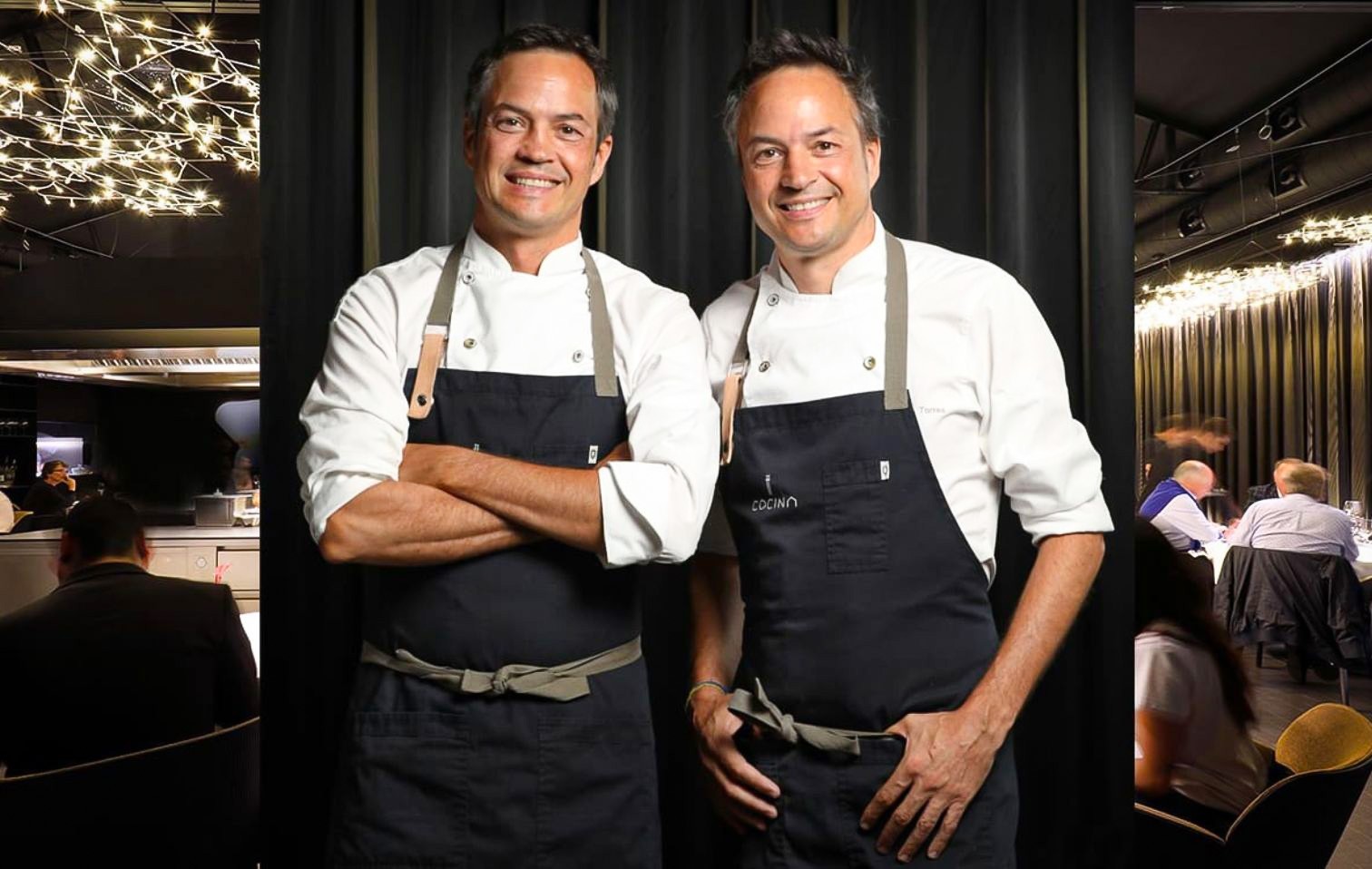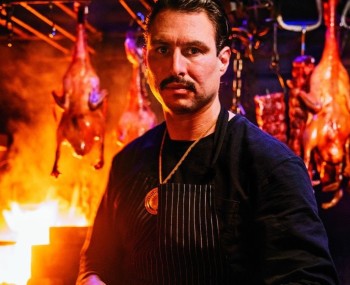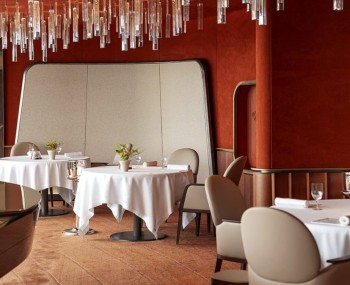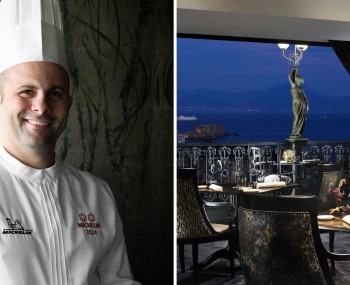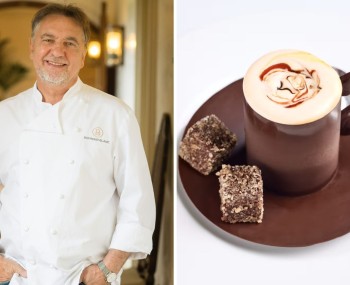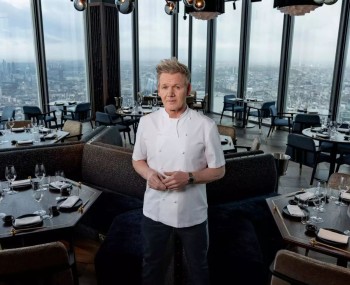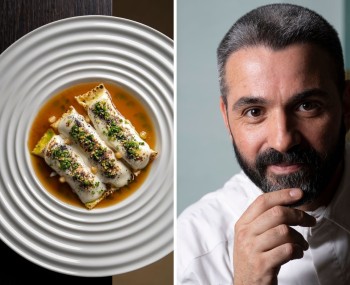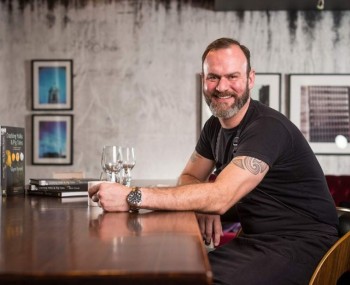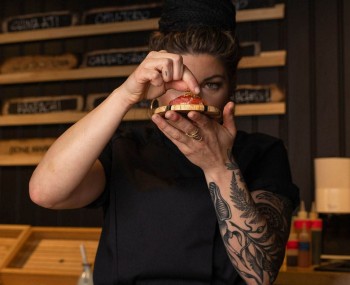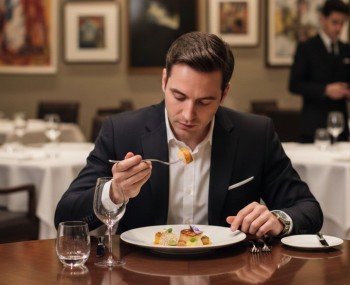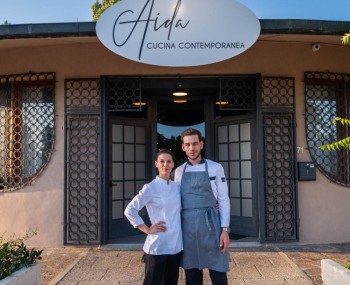About to open an informal seafood restaurant on Barcelona's harbor, the twin brothers, who already run two airport outlets, are modernizing Santi Santamaria's legacy in their three-star restaurant, putting the kitchen front and center after decades of extra-plate dining.
Photo credits: David Egui; Cocina Hermanos Torres
The Restaurant
Barcelona is one of the most gastronomically dense cities in the world: it is home to four triple stars, three doubles and twenty-one singles, including Albert Adriá's Enigma, whose brother Ferrán started Spain's siglo de oro. A history of men in a geography of contamination, given the proximity even linguistic proximity to France, which the tourist boom has endowed with an inexhaustible pool of high-spending international clientele.
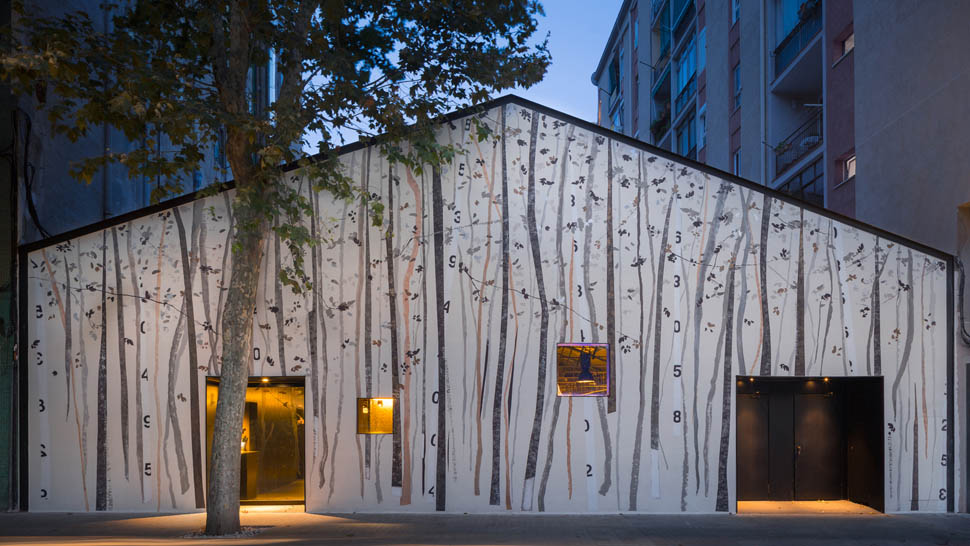
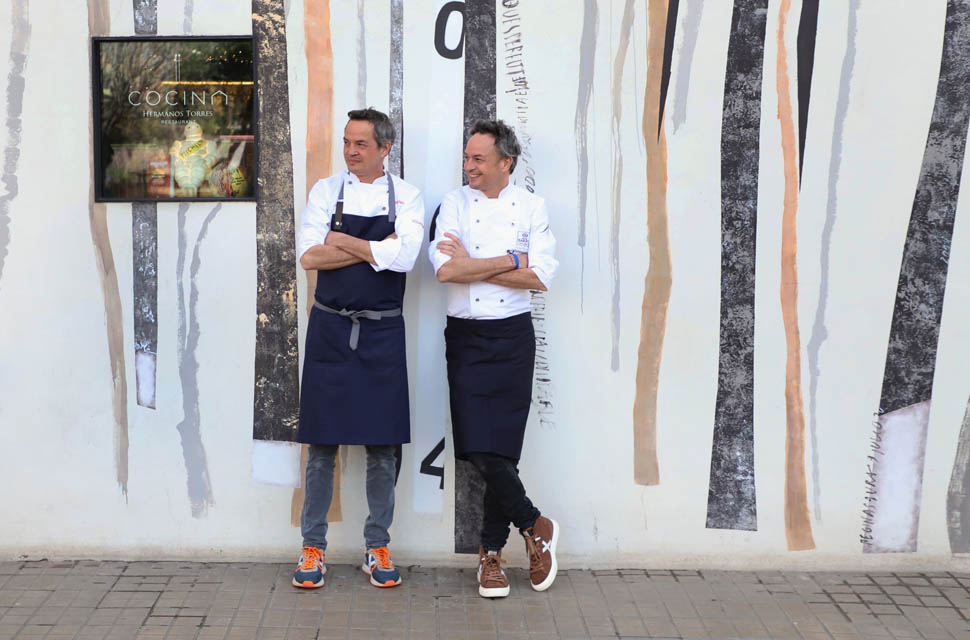
For the Torres brothers, however, Barcelona is first and foremost a return to their roots: here the twins Javier and Sergio were born and were weaned by their grandmother Catalina, a cook who worked in the homes of the well-to-do in Andalusia and then moved away to take care of her four grandchildren. “The heart of life was in the kitchen," Javier recalls. “She cooked seasonal dishes daily with lots of broths, always with great love. She lived to make us happy through food, throwing two parties a day: for lunch and for dinner."
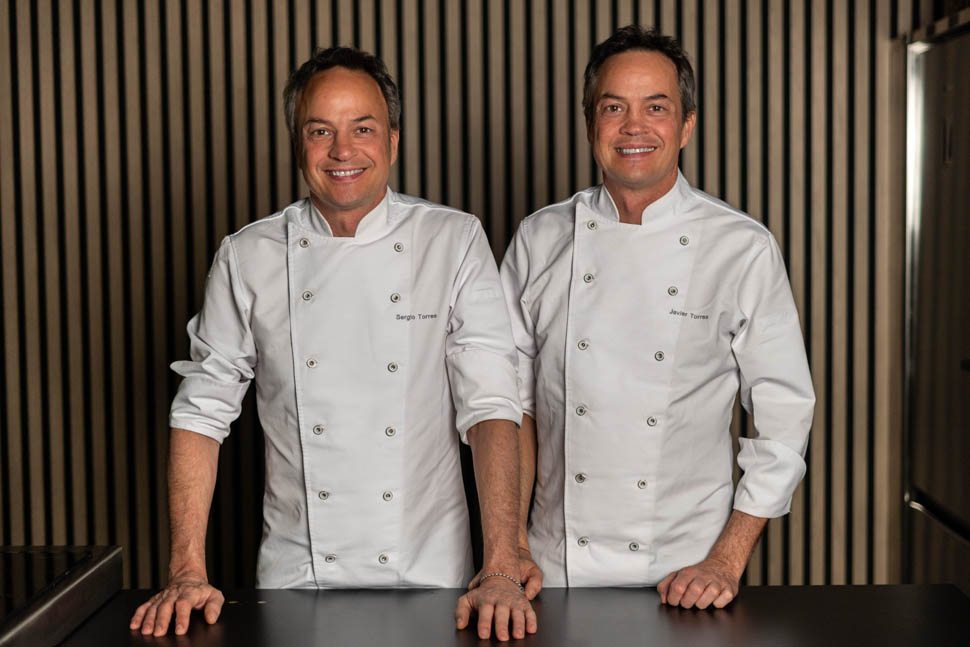
Those childhood memories also gave rise to the restaurant's original layout: not the classic open kitchen, but an island of stoves nestled between the tables, for background the sizzle of meats and the metallic clink of whips. It opened in 2017 in the working-class Les Corts neighborhood and within six years it was already awarded three stars.
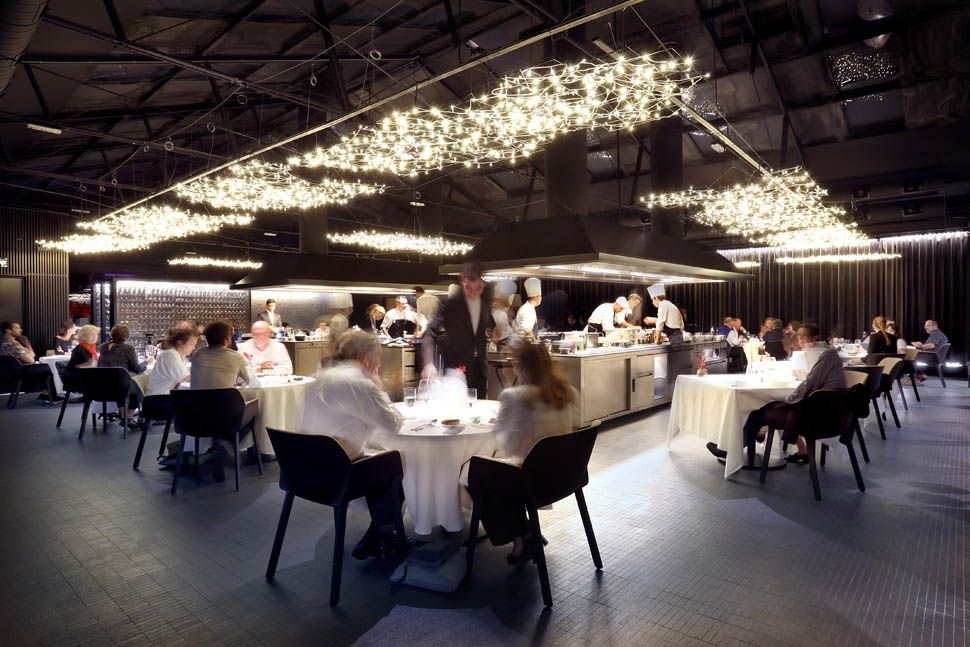
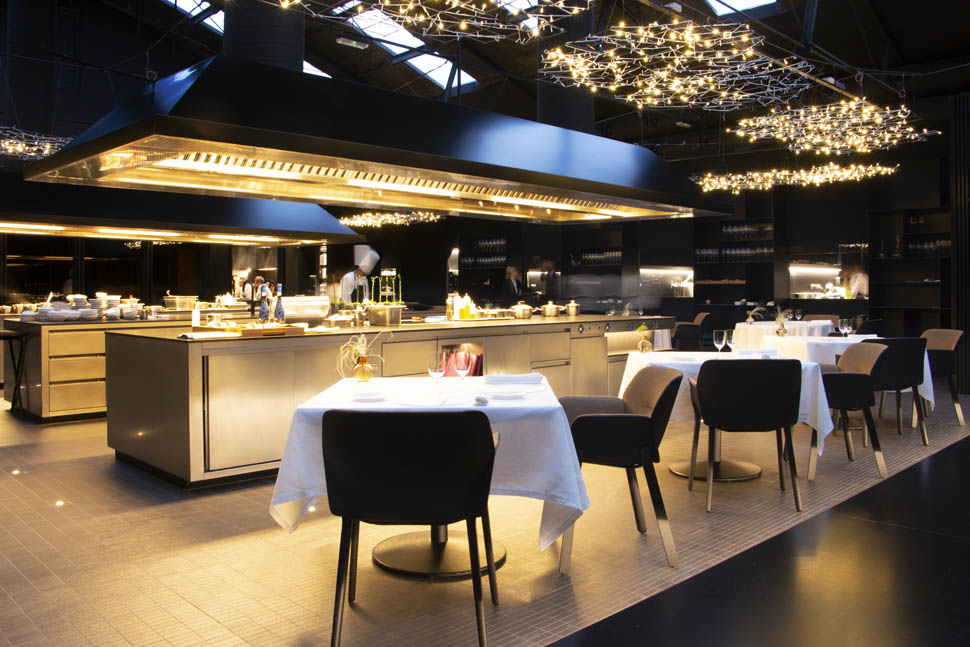
A somewhat expected result, given the intense pilgrimage made by the two to some of the world's most venerable shrines. In a small room in the back, where the signatures are shot, is gathered the pantheon of masters: Frédy Girardet, Alain Ducasse, Pedro Subijana, the Pourcel brothers (“also twins, a condition in which we understand each other on the fly”), Benoît Violier and above all Santi Santamaria, Ferran Adriá's historic antagonist, to whose hegemony the two are perfect strangers. Precisely at Racó de Can Fabes Javier was at length chef de cuisine, sinking into the comforts of a generous and rigorous cuisine, where the product crowned the guest.
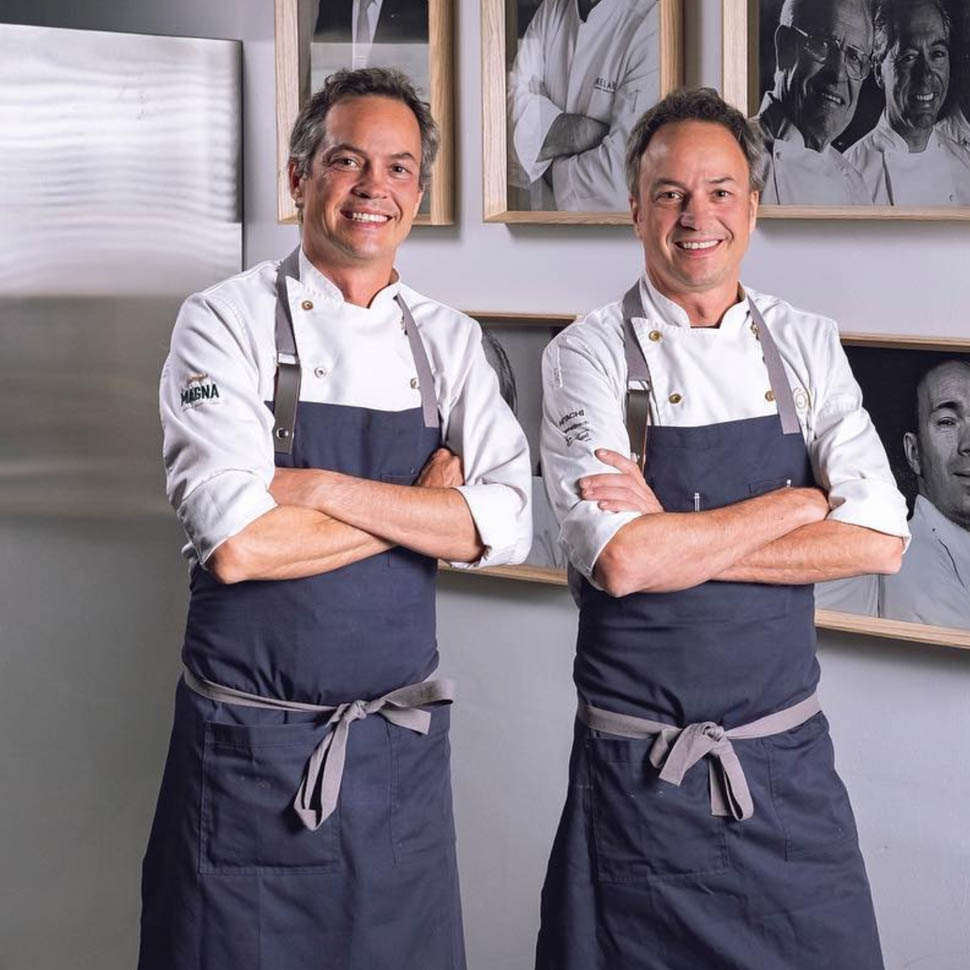
The modern conception of space, however, already banishes the spectre of nostalgia, which has no home here: Hermanos Torres is yes, like Sant Celoni, the realm of pure cuisine, placed at the center even of space, but time has not passed in vain.
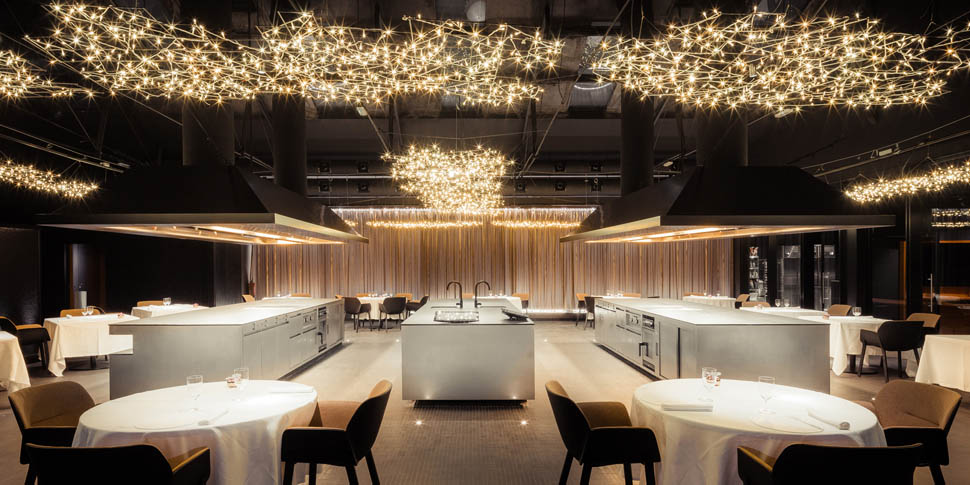
“In Catalonia there are many chefs who follow the elBulli star, we do not. We follow a more personal line, which privileges the material and seasonality. Any product we process comes from a special person, from the surrounding area but also from the rest of Spain. It is a cuisine of funds and slow times, also of aesthetics. In particular we are obsessed with flavor. And flavor is given by time, not speed. A good meat base takes time and generosity. We are convinced that this is the future."
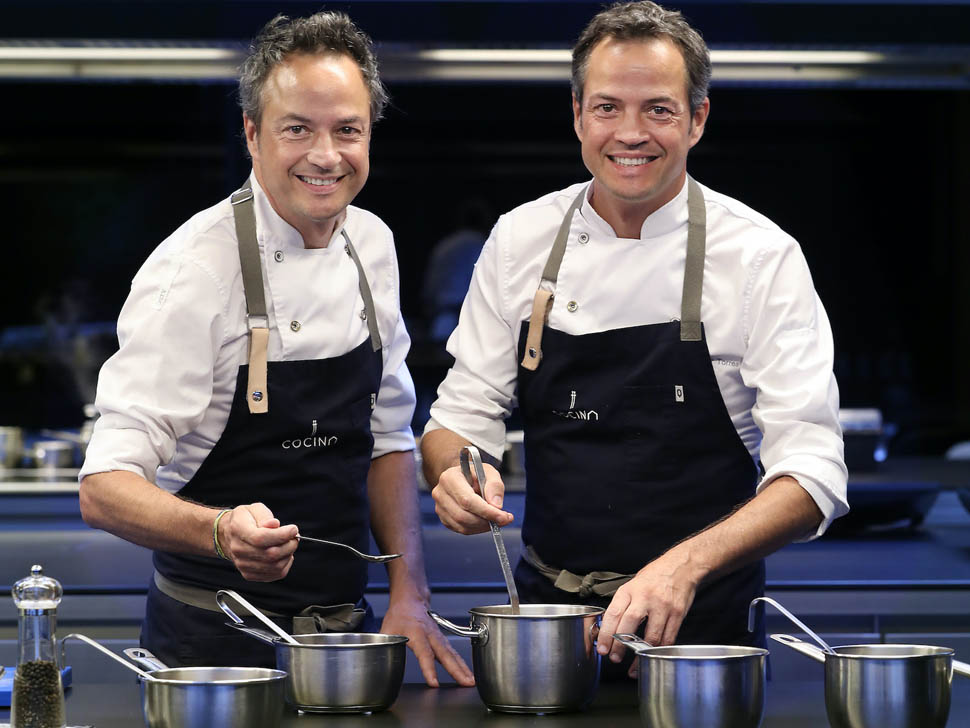
Yet behind the reassuring appearances of the dishes, textural lamb loin with shiny bottoms, flawless fish filets with their garnishes, always tasting like what they are, lies a dogged technique. Suffice it to say that the two of them helped devise Gastrovac in an effort to preserve nutrients and structures of beloved vegetables by lowering the boiling point to 35°C. But scattered Orientalisms also crop up in the dishes, as they were thunderstruck by a trip to Japan, and unpredictable contaminations with Brazil, where they have been operating.
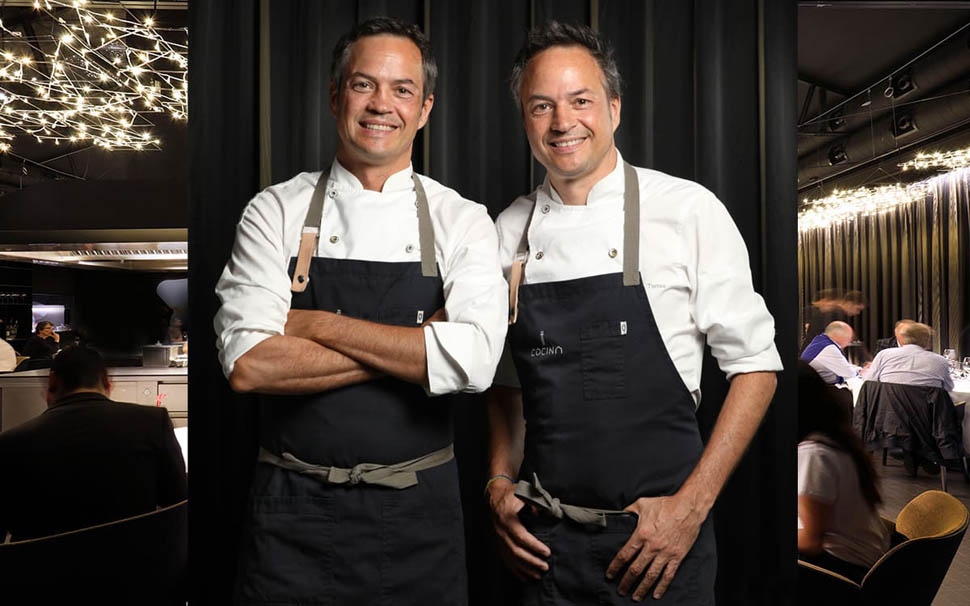
The brigade rests on two Italian boys: Carmine Memoli from Campania and Francesco Sansalone from Liguria, chef and sous-chef, respectively. With them are two sommeliers, who administer a 1,800-label wine list, and Pablo Sacerdote, the Argentine-born restaurant manager, who sets the pace for a room in sneakers. The tasting is one, plus a small menu to meet returning diners.
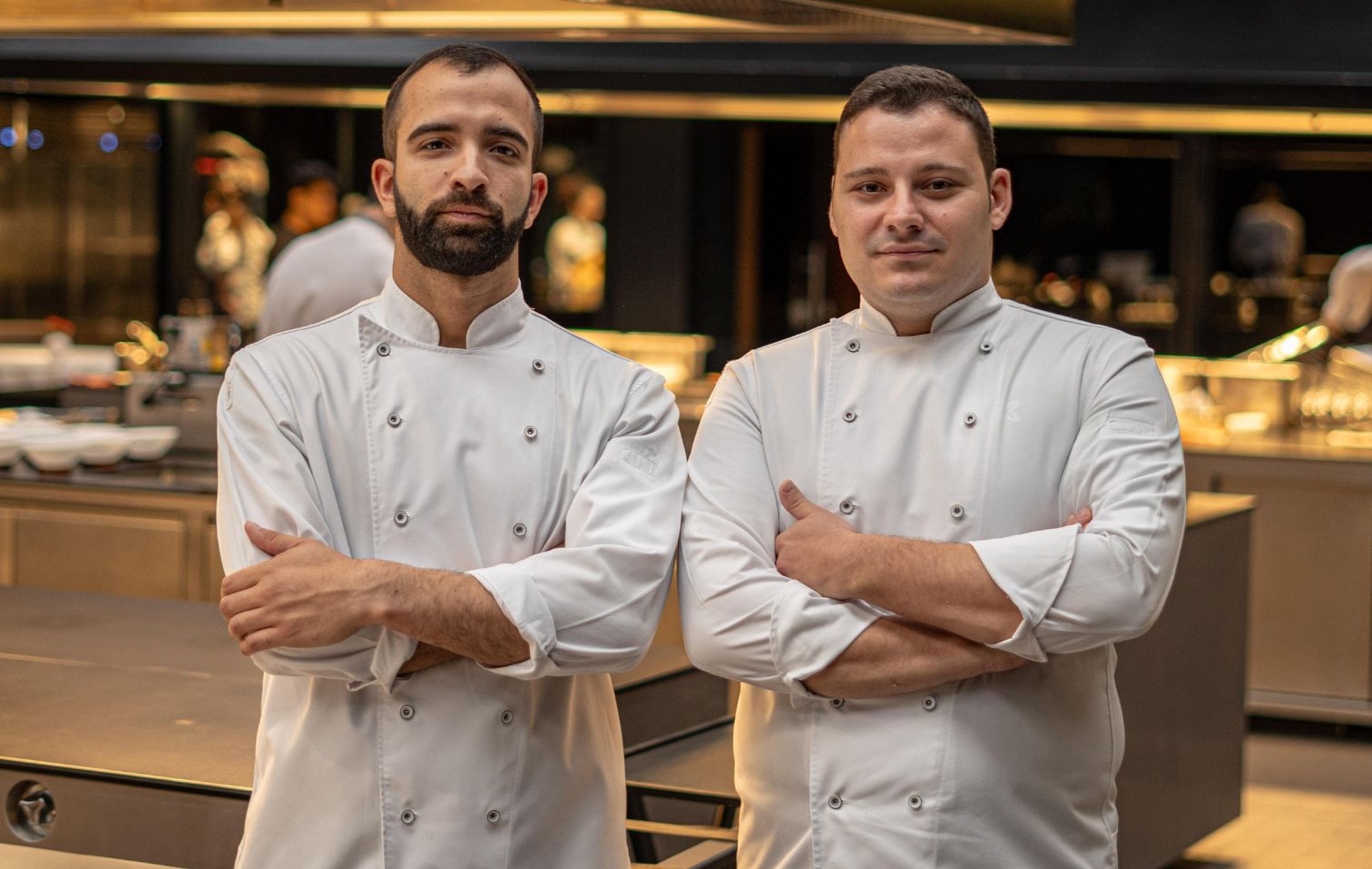
The Dishes
The squid marinated with the mother of sake is a signature, reduced to tartare and quenelle bound through mayonnaise made from the same base, topped with caviar and mirrored in the very clear poultry consommé. It already manifests taste purism at the sight, playing on the fish/white meat scheme of classical cuisine, estranged from Japanism.
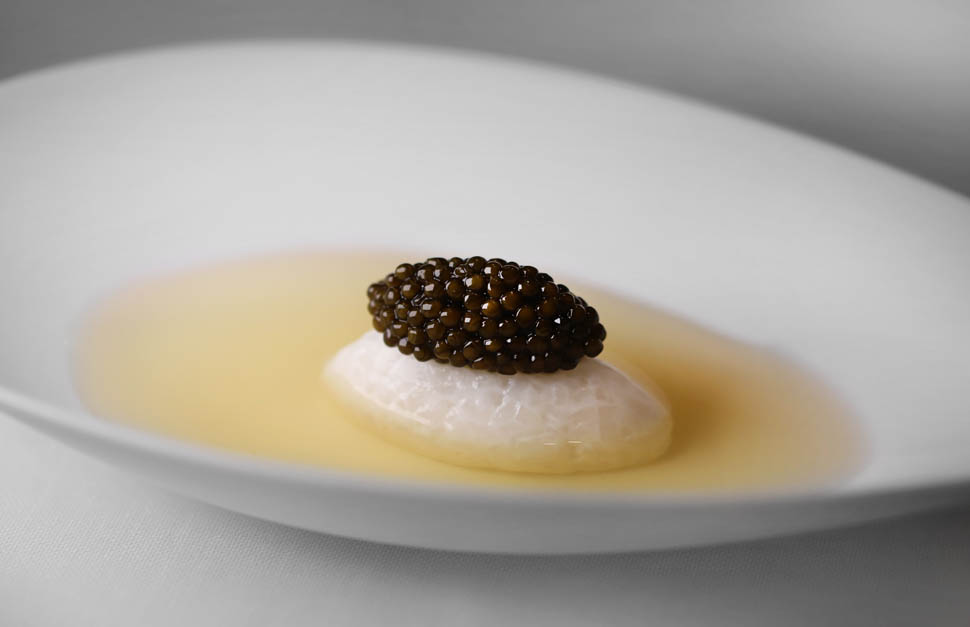
Elsewhere the product takes all the stage: see Galician crab with herb sauce and coconut milk, lobster steamed in miso, brown butter skate with piparra pepper, lamb with zucchini “croissant,” and suckling pig with dried apricots and tamarind.
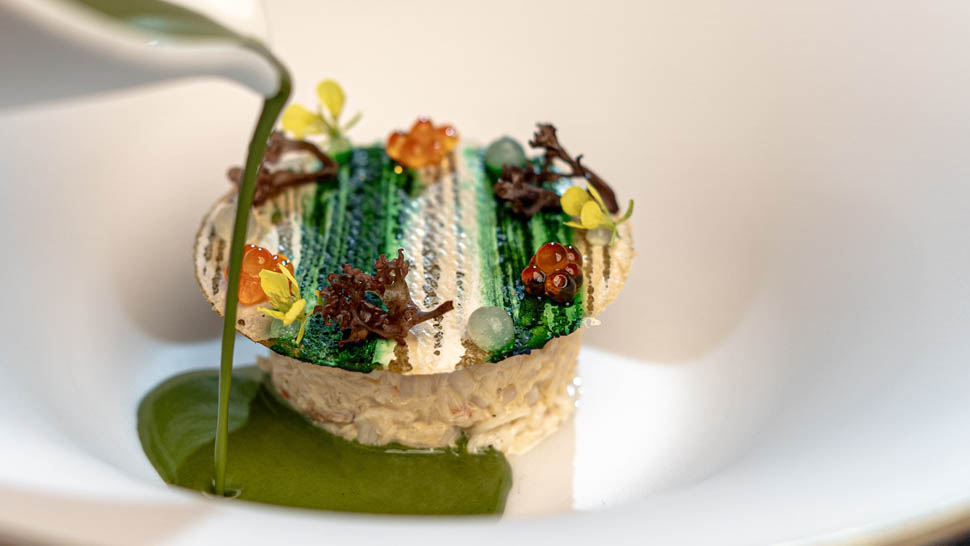
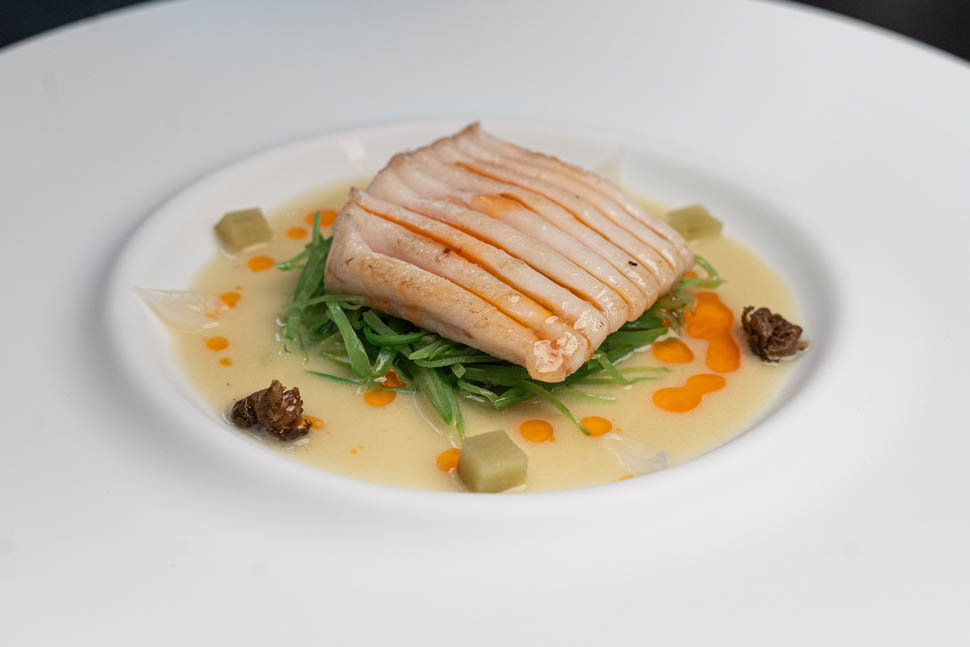
Carmine and Francesco, then, brought with them the culture of first courses: see the escalivada ravioli, grilled vegetables that serve as a side dish to the meat, processed into noodles not pasta and filled with matured Iberian pork ribs, plus pearls of sagù, Brazilian maxi tapioca, and vegetable broth.
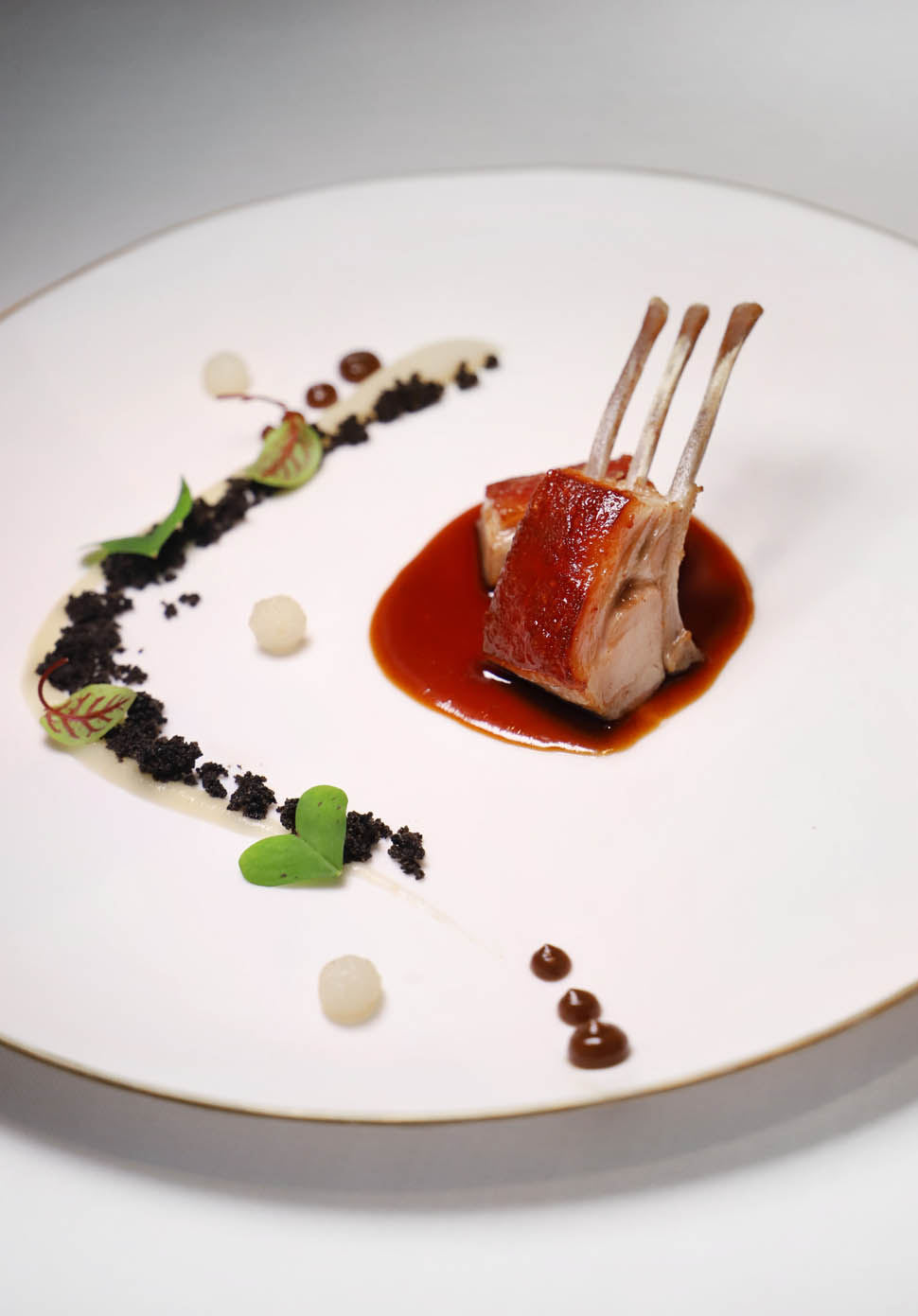
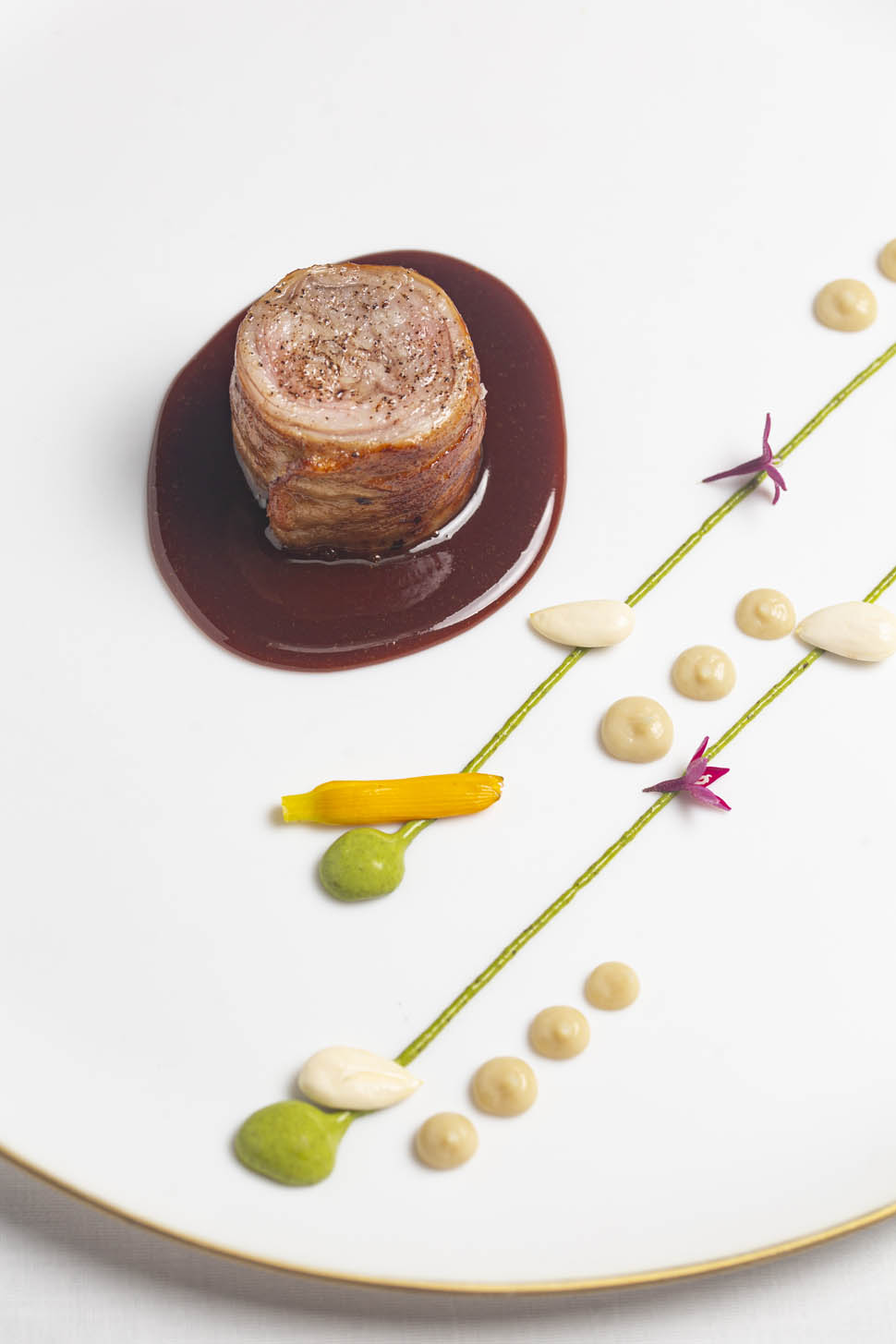
After the pre-dessert of lemon cream, celery cubes, yogurt mousse, green tea powder, herbal citric sorbet and dehydrated shiso leaf, the first dessert consists of fresh cherry in osmosis of its mint juice, sablé, oblate, fresh almond ice cream and cupuaçu gel, a kind of fermented cocoa mother with sour notes, another heritage of Brazil.
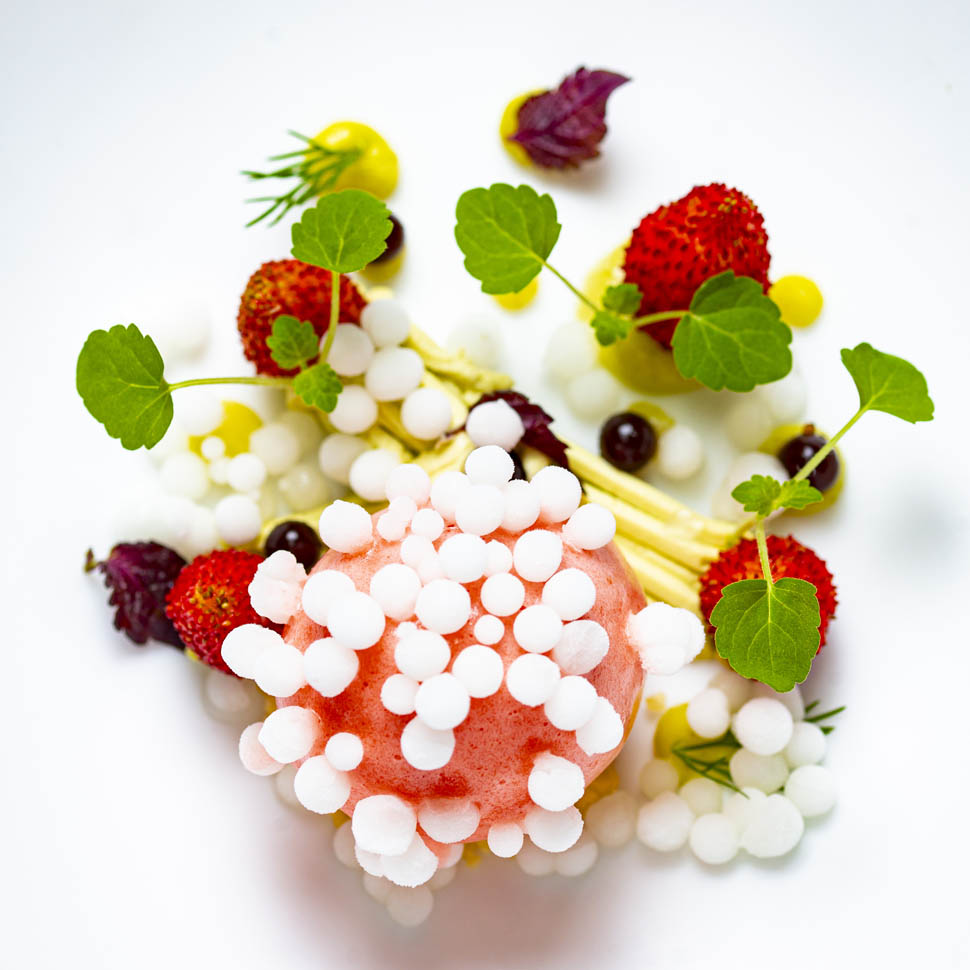
Then the grand chocolate dessert which declines the whole kabosside, with miso and hazelnut cream, chocolate flan, cocoa puree, cocoa cookie, mucilage ice cream, cocoa wafer and almond flour, on which to taste the monumental Cream Tradicion sherry.
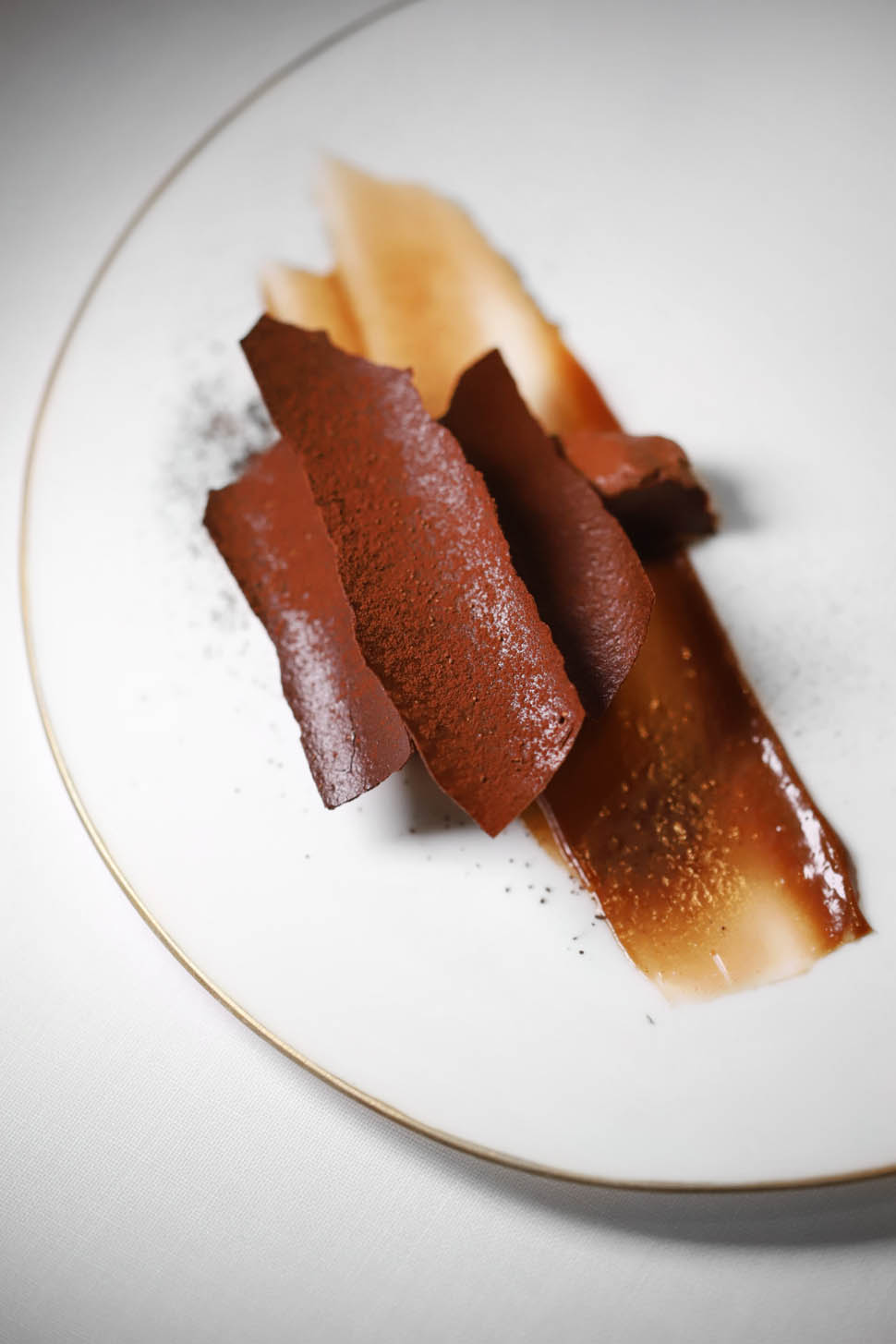
Contact
Cocina Hermanos Torres
Carrer del Taquígraf Serra, 20, Les Corts, 08029 Barcelona, Spain
Phone: +34 934 10 00 20
